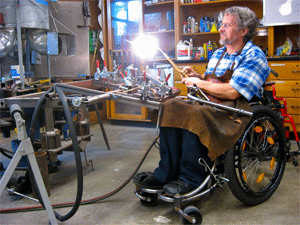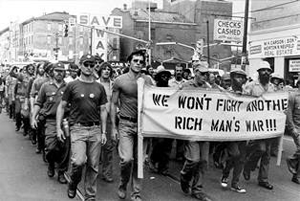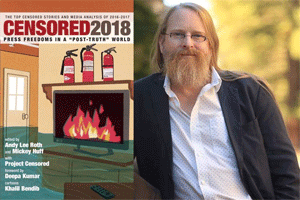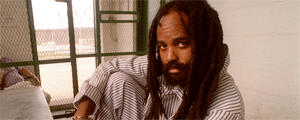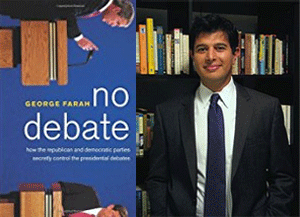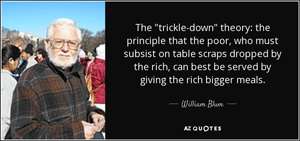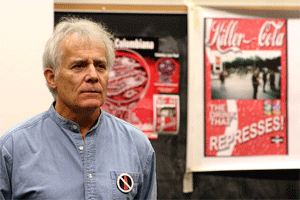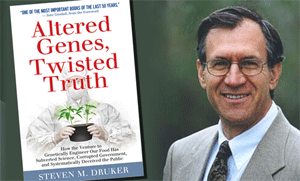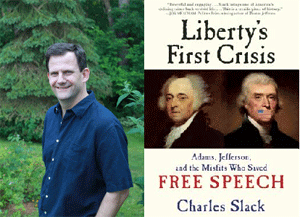November 28, 2014
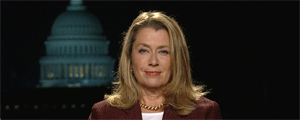
Public Citizen’s Lori Wallach explains in clear and engaging detail why so-called “Free Trade” is really an international corporate coup. In addition, Ralph talks about the lack of anti-war voices on major media, and the good news about solar power.
***************************
RALPH NADER RADIO HOUR EPISODE 37: Lori Wallach, Solar Power, War Talk
November 28, 2014
[Transcribed by Tara Carreon]
[Steve Skrovan] From the KPFK Studios in southern California, it's the Ralph Nader Radio Hour.
[Music] Stand up, stand up, you've been sitting way too long.
[Steve Skrovan] Welcome to the Ralph Nader radio hour. My name is Steve Skrovan, coming to you today from Los Angeles, California. David Feldman, as usual is in New York City, and the man of the hour, Ralph Nader, is in our nation's capital, Washington, D.C. Good morning gentlemen.
[Ralph Nader] Good morning to all of you.
[Steve Skrovan] I believe we have a particularly provocative show today. David, tell our listeners what we have in store.
[David Feldman]: Well today we're going to talk about a recent report from Environment America about the growing role of solar energy in the United States. We're also going to talk about another report, this one from the group Fairness and Accuracy in Reporting on the lack of dissenting voices in the mainstream media over our military actions in the Middle East and our guest this week is Lori Wallach who is the director of Public Citizens Global Trade Watch Division and is the absolute leading expert on globalization, the World Trade Organization and the so-called free trade agreements. She's been described by the Wall Street Journal as, and get this Ralph, and I'm quoting from the Wall Street Journal, "Ralph Nader with a sense of humor." Welcome, Lori Wallach. What do you think of that Ralph? “Ralph Nader with a sense of humor.”
[Ralph Nader] I don't think that's funny. I think Lori does have a sense of humor as listeners will soon see. She uses it as a way to get points across based on very arcane, legal sections of what are called “free trade agreements” but are anything but. So let's get under way.
Lori Wallach graduated from Harvard Law School and she started working in the litigation group, Public Citizen. And I thought there was a great opportunity for her in the emerging battle for new kinds of trade agreements that are forms of trans-national governance, secretive decisions made sidestepping our regulatory agencies, our legislatures, and our courts.
And at that time, in the early 90s, people were not aware of this. They weren't aware of anything but the nomenclature. That is “free trade, win, win, everybody wins.” You know, it's the old free trade mantra a couple centuries ago where the British sold textiles to Portugal and the Portugal vendors sold wine to the British, and they were both comparatively advantaged and everybody won.
It's quite different now, and on this program we're gonna hear from Lori as to why it's different, first by laying out the structure of these trade agreements and how radical they are against our constitutional and open government traditions; and then, going to how they have actually affected working people and communities in this country, and consumers; and then I know she wants to talk about the forthcoming Pacific Trade Agreement that President Obama is wrapping up with Asia and other nations and is gonna submit to Congress.
One other thing you must know about Lori: She is obviously relentless, persistent; she's been all over the world in symposiums and action arenas helping people oppose the rapacious impacts of these agreements, and once you get them in concrete, they really are pretty mind blowing in how cruel and vicious this organized corporate multi-national greed can be using government for its own purposes.
She's also well known on Capitol Hill. I introduced her to a number of Senators and Representatives in the pre-fight for NAFTA and WTO. She now has great credibility on Capitol Hill, and she may have some surprise projections for us about the way the House of Representatives is gonna receive the Pacific Trade Agreement which she has described as NAFTA ON STEROIDS, if and when President Obama sends it to Congress on fast track.
So take it away, Lori. Why don't you describe the structure of these trade agreements, and how they affect consumer, environmental, and worker rights, and not just trade.
[Lori Wallach] Well, the first things I’m going to know is that these trade agreements aren't mainly about trade anymore. So we've all been subject to a rather clever misbranding campaign where this concept of free trade, which most people think of as cuts in border taxes, tariffs, that's what free trade used to mean, has been used to basically slide through what is effectively a system of enforceable, global, corporate-led governance. And the way it works is that these so called trade agreements, let's just say the World Trade Organization, the thing that replaced the general agreement in tariffs in trade, GATT, that was a trade agreement. It only covered border taxes on things you could drop on your foot. If it wasn't an actual product, it wasn't under GATT. In comes the WTO. Everyone just is told it's a bigger stronger GATT. But in fact, of the WTO's 17 chapters, only 6 of 'em have anything to do with trade. The other 11 chapters set up binding policies, and we all have to conform, all levels of our domestic policies, local, state, federal law, to these rules.
So what kind of rules? Well there's an intellectual property chapter that expanded the monopoly period of patents that the big pharmaceutical companies had in medicines. What did that mean practically? The U.S. wants from a 17 year monopoly on medicines to a 20 year. That means three extra years to the big pharmaceutical companies to charge anything they want for medicines. So the University of Minnesota found that that alone was a $17 Billion increase in the price of medicines just for the medicines that were under patent at that time. So WTO instead of being free trade, is new monopolies for big companies, raising prices for consumers.
Or there's another chapter that limits the kind of food safety protections that we can have in our country. And it doesn't matter if those rules apply to domestic food and imported food. There's simply a ceiling on safety.
For instance, we're required to accept meat that is considered safe under some other country's standards. And by the way, some of the countries under those rules are now bringing in meat, they do this -- to those who aren't vegetarians already -- our countries have privatized their food inspection system. So you got countries like Australia that have astronomical rates of E coli in their chicken production who are sending their products here. Oh, and there's a whole set of limits on labeling of food. So we can't even know the country of origin of the food.
Or in WTO there's a whole chapter to deregulate the banksters. So during the 90s heyday of deregulation those guys got their own chapter in WTO that limits a lot of the key financial regulations that we need now to make sure that the bank doesn't take our house, to make sure that we don't have another financial crisis.
All of those things have nothing to do with trade under the brand of free trade. And because we've all been told, “free trade; it's so good,” those words, such good news, “free trade.” Who doesn't want those things?
Congress, when WTO announced they were under consideration, really was largely clueless despite our best efforts that this wasn't a trade agreement, this was like a slow motion coup d'état by corporations. Because if any country doesn't change all of its domestic laws to meet these rules, which by the way don't [inaudible], you can't change a comma unless all the signatory countries agree --
[Ralph Nader] How many are there?
[Lori Wallach] 160 in WTO now.
[Ralph Nader] Each one with the same vote, right?
[Lori Wallach] Each one with the same vote, but if you don't change your laws, you face trade sanctions. That's just the punch line of it. It's actually enforceable unlike most global rules. You actually, if you don't comply with these retrograde rules, your country gets slapped with billions in trade sanctions that don't go away until you cave in and get rid of your consumer protection.
[David Feldman] So Lori, this to me sounds, not to sound conspiratorial, it sounds like corporate world government. I mean, it sounds like, if I'm hearing you correctly, these agreements are all made to bypass domestic laws and safety standards, health and safety standards.
[Lori Wallach] Your perspective is exactly right. And what has happened basically is that to the extent the rules have been enforced time after time, domestic, environmental, consumer, and other laws have been rolled back. So just in the U.S., under the WTO, we've seen the dolphin safe tuna rules rolled back. So everyone knows that on the tuna fish there's that little smiling dolphin label. That no longer means that Flipper didn't die. The standard used to be, no tuna can be sold here if it's caught with the circle nets that drown dolphins.
[David Feldman] Right.
[Lori Wallach] No, no, no, no, no. After one of these trade cases, the U.S. rolled back the standard to avoid a trade sanction. All it means now is no one on the boat saw Flipper die. It's literally a roll back of the standard after a case to avoid the sanctions.
Or Clean Air Act rules on gasoline cleanliness put into place to try and counter the epidemic of asthma in our cities rolls back after a successful WTO case.
Or Endangered Species Act rules that were put into place to try and save endangered sea turtles rolled back.
And right now the WTO is about to impose sanctions over President Obama's landmark 2009 laws on tobacco to keep kids from smoking, and on a policy relating to the country-of-origin labeling of our meat.
[Ralph Nader] Of those examples you gave, indicate what countries challenge the U.S. in those tribunals in Geneva to get their way, starting with the tuna.
[Lori Wallach] Well, this is the perverse thing. Right now is where we're going to talk about, we're having negotiations with a thing called the Trans Pacific Partnership. And it includes Mexico, a country that has repeatedly used the WTO to attack our domestic consumer and environmental laws. Because NAFTA, the North American Free Trade Agreement, just like the WTO -- namely not about trade; enforceable; all these corporate rules; chapters imposing retrograde policies having nothing to do with trade -- under that agreement Mexico has also challenged our rule that requires that only trucks domiciled in Mexico that meet our driver safety, insurance, and environmental standards, can come into a certain part of the U.S. And Mexico's using NAFTA -- the similar tribunal system with the sanctions -- to say no, no, no, no, no, you have to allow these trucks to drive anyplace in the U.S. And of course president after president, Democrat and Republican, has said, “But wait, these trucks aren't safe.” Sorry, $3.2 billion of trade sanctions were imposed. President Obama's allowed a pilot program allowing in those trucks.
[Ralph Nader] Lori, can you explain how it overrides domestic sovereignty? I've often said that these trade agreements involve the greatest surrender of U.S. sovereignty -- local, state, and national -- in U.S. history. Every treaty involves some relinquishment of sovereignty so nations can get together, sign on, and pursue a common objective. But in this case, give the example of child labor, which is illegal in this country. Under WTO, countries using child labor exporting products to this country. That tells me how our sovereignty is being overridden. You remember Tom Harkin tried to do something about that in the U.S. Senate. Can you explain that?
[Lori Wallach] You bet. So, let me just first practically explain what the key provision is. Every one of these agreements has a provision that says the signatory countries, like the United States, “SHALL ENSURE THE CONFORMITY OF ALL DOMESTIC LAWS, REGULATIONS, AND PROCEDURES”, with the attached agreement. So that's the actual WTO text.
What that means is, for instance, U.S. law currently forbids the interstate movement -- movement between each U.S. state -- of products made by the labor of children younger than 16. That's how we have a ban in our country on child labor. The WTO has a rule that basically does not allow countries in making their domestic laws to distinguish the ways in which things are made. A physically identical product has to be treated the same, regardless of the labor, environmental, or other conditions. So, for instance, that is the child labor issue. So the U.S. at a certain point realized that our intrastate trade in banned child labor products was being undermined by imports from developing countries that permitted child labor.
So the U.S. government moved to actually have a new amendment to the law that said, “AND, NO PRODUCTS” – this is what Senator Harkin wanted – “NO PRODUCTS MADE BY CHILD LABOR SHALL BE ALLOWED INTO THE U.S.” And immediately a variety of WTO member countries that use child labor wrote to the U.S. and said, “We're so sorry. You're not allowed to do that. And if you proceed, we will take you to the WTO. That is a violation.” And by the way, that's the same theory, that's the same WTO rule under which we had to roll back our dolphin protection. Because the basic rule is unless literally there is a dead dolphin in the tuna can, tuna that is caught dolphin-safe cannot be distinguished from tuna that is caught killing dolphins. A shoe made by a child laborer bound to a machine and starved, cannot be distinguished from a shoe made in the blue-star OSHA safety plant of plant ownership of a co op in Maine making a shoe. A shoe is a shoe. You cannot distinguish. And the notion that some tribunal of three unelected trade officials would be able to become judge and jury and executioner for a U.S. law that's been made through the domestic democratic process stood up in courts, is enraging. Ralph, as you've said, if these rules were ever fully enforced, you would have people on the street in revolt against these trade agreements.
[Ralph Nader] Talking about that, a listener might wonder, why isn't this unconstitutional. Because it's basically overriding our three branches of government: federal, state and local.
[Lori Wallach] The way it's written is ingeniously clever. Instead of literally preempting the law, instead of saying, “This is now the law,” the way it works is that if one country hasn't changed all its domestic laws, another country at the WTO can drag the first country into one of these WTO foreign tribunals. And the tribunal says, “Well, United States, you have this obligation. You've failed. So either you have 90 days to change your law -- and we don't care if it's gone to the Supreme Court -- we're telling you. Or if you choose not to do that, well, you can just face perpetual trade sanctions. Mmm, this one looks like it's worth, I don't know, $12 billion a year.” And then we basically have a gun at each temple: change the law, or face perpetual sanctions.
In the history of WTO there have been several hundred of these cases – by the way, the U.S. has been hit by more challenges than any other single country – but in the history of these 200 WTO cases where these tribunals have ordered countries to change their domestic laws, there are literally about four cases where countries have not done so immediately. The only country, frankly, that just finally stood up and said, “Fine, we'll pay,” was the European Union -- not a country -- when it was ordered to get rid of its ban on artificial hormones in beef, which are associated with cancer. And the European Union basically said, “Well, we're going to have revolts of people with steak knives trying to poke their government on the streets if we do this. So we're just going to pay the sanctions.” And they paid $300 million a year for 14 years. This case, sadly, the U.S. brought against Europe on behalf of the big cattle exporters. And ultimately, duh, the U.S. negotiator said, “You know, I don't think they're gonna actually change their law. We may have to settle with them.” But they still had to concede a bunch of other tariff access to be able to get us off their back with the sanctions.
So with that sanctions sword of Damocles, countries just cave. Hell, half the time you don't even have to take 'em to tribunal. You just write the challenge threat and they cave, because it costs a fortune to defend these cases.
[David Feldman] Lori, what year was the WTO founded? Where are they headquartered? Ralph has been talking about tribunals. Is there any illusion of a democracy where citizens can address the WTO? Is there any parliamentary structure?
[Lori Wallach] No. The WTO went into effect in 1995 on January 1st. It sits in an old palace on the shores of Lake Geneva. I just would note that it has a set of front doors covered in an iron grate, and two Swiss guards out front. And when the doors swing open, [makes squeaky ancient gate-opening sound] it reminds you of the first scene of the Wizard of Oz. And in there, it is kind of the guy behind the curtain, because “there is no there there.”
Before I really became fully savvy to how insidious this institution was, as sort of this naïve young lawyer, I would go to Geneva, I would find something in a text that needed a change. This was before the WTO round was completed. And I would go to an official there on food safety, and I'd say, “You know, if you put the comma there and have ‘and” instead of ‘or,’ you more or less roll back on, I don't know, five decades of food safety improvements. And they say, “Well, I don't know if that's true, but, you know, we can't help you. You need to go talk to your government.” So then I go back to Washington, and I go to the office of the U.S. trade Representative, and I say, “There's is a problem here, the ‘comma,’ the ‘and,’ and the ‘or.’ And they'd say, “We're so sorry, we can't really help you. This is a multi-country negotiation. And it's done in secrecy. Because it's a matter of foreign policy. And I can't really help you.” It was like punching a damn marshmallow. You couldn't gain traction anywhere.
[David Feldman] The United Nations has a U.N. Security Council where the United States has a permanent seat. So all votes in the U.N. are not equal. But are you saying, I don't believe that 160 votes in the WTO are all equal. How do they –
[Lori Wallach] They are all equal.
[David Feldman] They are all equal.
[Lori Wallach] Yes. And in a pretty infamous case, a tiny, tiny, one of the smallest population WTO member nations, the nation of Antigua, has sued the United States demanding we get rid of our ban on Internet gambling. And Antigua won. Antigua basically, there's a rule in the WTO, this is the one that also threatens all the financial regulations, that says, “If you made a commitment to liberalize a particular service” -- because service regulation, everything from healthcare, transportation, education, all covered – “If you made a commitment to liberalize, then you can't have any quantitative limits. And a ban on some dangerous activity, that's a forbidden limit.” So even though the U.S. claims it took an exception for this, the WTO says, “Yep, Antigua wins.” Antigua population, 60,000.
[Ralph Nader] By the way, Antigua has the same vote as China, or Germany, or the United States, if there is ever to be a change in the charter of the WTO. All countries, though, can give 6 months' notice and pull out. But none of 'em have done that, because retaliation can be pretty severe.
Explain Chapter 11 in NAFTA. This one will blow people's minds. And also explain how under the WTO we can't be first -- like with seatbelts or airbags -- because of these harmonization procedures. Can you explain those two before we get into the job loss on the reports you put out regarding NAFTA and other trade agreements?
[Lori Wallach] Well, that's right. Before we get off of WTO, one of the other things that folks just need to think about is, as a practical matter, what this is about is taking decisions on the things that will affect your day to-day life up and away from you. Which is to say, think about the battles folks have been involved in across the country to get, for instance, our school lunches coming from local farmers, and all the farm-to-school rules. And in all those rules, we basically are, for instance, using our local school district budgets to try and promote sustainable agriculture, nutritious food for our kids. Then you have rules like in the WTO, decided in Geneva, unappealable, unchangeable through even Congress unilaterally. We can't do a thing about it. Just for instance, say we can't give those kind of local preferences. And while we're talking, there's a procurement chapter that explicitly says, “No preference to buy local.”
And while we're talking about food, this gets, Ralph, to the issue you raised about harmonization. That's another of these perverse euphemisms in WTO ese. And that word means, “Making uniform all regulatory standards” -- so as they claim – “to ease trade.”
Now I've made the point, if the point is just uniformity to ease trade, let's all go uniform at the highest standard. Let's all adopt the European standards on food safety. Bon appetit. Unfortunately, the way the WTO is written, there is a ceiling on how strong your standard can be. And you're only presumed to be in compliance with the WTO rules if your standard is lower than that ceiling. So you can be below, because there is no floor, but you can't go higher. And in some chapters, there's a specific rule saying that your domestic standard should comply with standards at international organizations. And for food, there's one listed called “The Codex Alimentarius.” If that sounds like a form of the flu, you would not be off too far. It is standard-setting body where the actual food multinationals have a seat. And this is a body that, for instance, still allows the use of DDT on fruits and vegetables. Not a set of standards you want to be relying on when you feed your family.
Under the WTO rules, the Codex standard, if that's your standard, if you adopt that domestically, which is your obligation, okey dokey. If you have a higher standard, like that European ban on artificial cancer-causing hormones in beef, “Sorry.” You have to get rid of it, or you face perpetual trade sanctions.
Now all of that would be bad enough, but now, as you raised Ralph, Chapter 11 of NAFTA, The Investor State Enforcement System. So under WTO and under NAFTA, countries can sue other countries in these tribunals. But, you know, countries kinda think about it. Because what one country's attacking another country for, hell, their law could be like that too. There's a diplomatic screening that goes on. The Investor State System gives direct privileges to individual foreign investors, and allows them to privately enforce those rights in the foreign tribunal, to demand compensation from our federal treasury for any domestic policy that the individual company claims violates their new privileges and rights under the trade agreement.
[Ralph Nader] Yeah, give some examples.
[Lori Wallach] An individual company is elevated to the same level as a nation state, literally.
So here is an example that I find particularly galling. Under NAFTA there was a US company called Metalclad. They're in the toxic waste business. They bought an establishment in Mexico that the local government had shut down when it had been previously owned by a Mexican family. And the Mexican company had polluted the ground water. It hadn't properly disposed of toxic waste. So all of its operating permits were taken away. So the US company comes in and they buy it as what's called “A brown field.” As is. No operating permits. And the local government, excited that someone might come in and clean up the place, because the buy was a bargain, basically says, “Here's what you need to do to get the operating permits. We've done the assessment. Clean up this. Fix that. Add clay over here. Etcetera. The US firm doesn't do any of that. Instead they come back and say, “I'm sorry, we're a foreign investor protected under NAFTA, so we're not actually gonna do those things. And we don't care that you made these same obligations for the Mexican company, we're a NAFTA investor. So either allow us to operate this place, or you can pay us.” And they went to one of these investor state tribunals, and extracted from the Mexican government 13 million dollars. Then they never operated the place. They got 13 million dollars, because their investor privileges were denied, because they couldn't get the permits, because they wouldn't clean up the place. And they were treated exactly like the Mexican company that owned it previously.
But that's not the anomaly. Over 400 million dollars have been paid out to individual companies under NAFTA. And there have been those kind of corporate court attacks on water policy, timber policy, toxic bans.
Here's another doosey, Ethyl Corporation, the lovely people who put lead in our gasoline for a period of time. Ethyl had a gasoline additive called MMT. The stuff is banned in reformulated gasoline in the US. And it is a suspected neurotoxin. There are all kinds of serious problems with it.
So Canada decides it's gonna ban it too. But the way Canada's laws work, the way their federal system is set up, they can't do a national ban. What they do is they ban intraprovincial movement, just like we do on child labor. That's how we got rid of child labor, and that's how they get rid of toxic. So they loose this ban. Ethyl says, “Yeah, we're really sorry, but you can't do that to us now. NAFTA is in place, and we're a NAFTA investor.
And of course everyone thought, “Okay, what the hell's their investment? They don't own a plant there. They just sell a product there.” Well a tribunal basically gives jurisdiction for their case, and they go to the Canadian government and say, “Here's the deal. You can get away with just paying us 17 million dollars versus the full loot we're gonna get if we go through with this, but you also have to publish an ad in big newspapers around the world saying, ‘The stuff is safe,’ and you have to reverse your ban. And we'll let you off the hook if you do that. We'll let you settle.” And the Canadian company did it. And that junk is back in the gas, and the Canadian government paid millions of dollars for basically not being allowed to regulate.
One that's going on right now that's totally outrageous is an attack on Egypt's increase in its minimum wage after its revolution. There is -- and this is not under NAFTA -- this is a case that is using the similar tribunal system in an agreement between France and Egypt. The European company is basically claiming that the contract it had to do waste pickup, garbage collection, in the city of Alexandria, that the contracts rights had been undermined, because the increase in the minimum wage will undermine their profits.
And the final one is just so stunning. There's a recent case that had an award over 40 billion dollars. Up until recently the biggest case was a 10 billion dollar award , and before that it was a 3 billion dollar award. And all those have to do with oil, mining, or gas cases. The big companies -- Occidental, Chevron -- are using this mechanism to beat the stuffing out of countries.
Oh, and there's Eli Lilly using this regime to try and attack Canada's patent system for medicines, because Canada, as we all know, has lower prices.
And even Philip Morris is using these secret corporate tribunals to attack the cigarette plain packaging rules in both Australia and Uruguay.
It's an epidemic of corporate power attacks. And this system, which was in NAFTA, could be expanded enormously if President Obama gets his way with his Pacific and his European proposed agreements.
[Steve Skrovan] That's my question Lori. This is all outrageous, and you're an amazing voice speaking out against this. What is wrong with Obama? Why is he pushing this? Who's advising him? What possible rationale could he have for our own laws being undermined by some corporate world organization?
[Ralph Nader] Especially after his 2008 election promises, Lori, mention that. And then go to Congress fast track, and Congressional abdication here.
[Lori Wallach] Well first of all, everyone can see President Obama's pledges. He pledged he would get rid of the Investor State Tribunal system. I mean, the guy was a constitutional law professor. He knows how outrageous this is. He pledged that he would replace the fast track trade authority system we're about to talk about. a very undemocratic Nixon era procedure that even more takes away our democracy in these trade policy areas. He said a lot of great stuff. And you can see all of it live, with footnotes, at our website, which is http://www.tradewatch.org. That's tradewatch.org, tradewatch, one word. And you can also there see the only complete list of all the Investor State cases under US agreements, where we've summarized the case, translated it out of gobbledy gook, these rulings are like 500 pages long. But we also put links. So if you wanna torture yourself, and read the damn upsetting cases you can go back to the original source. And that's also at tradewatch.org. Because when folks first hear about this Investor State system, they have two reactions. One, the person talking about it is crazy and paranoid. Sadly, that’s not the case. This really is happening. Or two, they say what you say, “Well how the heck could President Obama want that? How could he be pushing more of that?”
[David Feldman]: Yeah, what is wrong with him?
[Lori Wallach] Yeah, what is wrong with him? And I have to just say, my initial thing I always say is you know, because people have feelings about this, “ I'm equal part heartbroken, and hot raging furious about it.” Because he's gotta know better, and he's pushing the system that totally contradicts his basic policies.
And the answer I have of “Why?”, the best I can tell, has to do with the 600 official corporate advisors, who by statute have an official role in setting US trade policy. And the silo in the White House of people like our current trade representative and the President's law school buddy Mike Froman, the Citi Bank alum, a guy who was with Robert Rubin during the Clinton administration, a guy who's one of the last unmitigated lovers of NAFTA amongst Democrats.
The President is hearing from the corporate advisors, the President is hearing from his own senior economic staff, and they have a take on this that is either intentionally omitting these big problems, or they have convinced themselves for their own convenience that these concerns are not such a big deal.
So they'll go one by one through all these cases and explain to you why, “Well actually, maybe Metalclad you know, maybe that wasn't a bad decision. Maybe that should've happened.” And if someone had actually bothered to read these cases, actually I wish I could just lock the President up for six hours and have him read three or four of these cases as compared to getting the filter. But we know better. The guy's gotta know. And he's made this decision for political purposes, he's made this decision because there is a horrifying elite consensus -- uninformed, I might add -- in support of these agreements.
It's breaking. For instance, unlike NAFTA, where all these guys supported it, Sachs, Stiglitz, Krugman, have actually now researched what's in the agreements, instead of just a kneejerk, “Ooh, it's free trade. I like it.” And they have come out, all three of those guys, against the TPP, the Transpacific Partnership, which is the agreement where President Obama would expand this model.
So how could he possibly, I mean what the hell's he thinking?
But then there's also, “How the hell could this happen?” And that gets to the issue Ralph raised, which is fast track. So a lot of people who are listening to this are thinking, “So was the entire Congress lobotomized or drunk the day that the WTO or NAFTA came up for a vote?” Like, “How could these guys possibly, Democrats or Republicans –“
Hell, just think about it from their own turf. I mean what's the point of Congress if you got this extra judicial system above you? Why did these guys approve this? And part of the answer is the power of all the corporations who love this stuff. It's their way to get these policies that they couldn't possibly get in the sunshine of open process. But, the other piece is fast track.
So this is a procedure that Nixon cooked up to basically railroad trade agreements through Congress. And before that, to allow a form of really diplomatic legislating, where Executive Branch negotiators, with all these corporate advisors, literally 600 official ones, are newly empowered to not just negotiate trade terms, but to actually go beyond trade. And with Nixon's fast track in 1973, for the first time our trade negotiators are allowed to set binding terms, terms that are binding Congress and State legislatures, on service sector regulations like energy and climate policy. Now we think of it on intellectual property, some medicine prices, Internet freedom on what they called “standards,” that we would call product safety, food safety, environmental rules. All of a sudden they have this new power. For 200 years prior to that, trade agreements only dealt with border taxes, tariffs and they only dealt with real trade. And so fast track both opened the flood gates for this backdoor legislating via secret trade negotiations, and set up a procedure to make sure that these over-reach agreements would basically be railroaded through Congress.
[Ralph Nader] Explain fast track. When the President sends the specific trade agreement to Congress, what is fast track?
[Lori Wallach] So that's just where I was gonna go. So funny little thing: that Boston Tea Party that we all learned about as kids. That was actually a trade war. So the founding fathers, when they wrote the Constitution, they had all been seeped in that history. And they decided that they weren't gonna give power over trade to the king, the Executive Branch. In fact, they gave exclusive authority in the US Constitution, Article 18, to Congress. It's one of the biggest checks and balances in the entire Constitution. Congress has explicit, exclusive authority over trade policy. But only the Executive Branch can negotiate with foreign countries. So they have to cooperate. And for 200 years of history of our country, Congress just told the Executive Branch negotiators what to do.
In comes fast track. This is what Nixon got Congress to agree to. Number one, the President unilaterally picks the country. Number two, the President negotiates an agreement. Congress gives objectives, but they aren't binding. The President can then, three, sign the agreements, and enter into it before Congress gets a vote. Four, the right in implementing a legislation bill that changes all US laws needed to conform to the agreement, and adapts the actual damn text of the thing as US federal law. So it just preempts all state law.
[David Feldman] The Congress has to agree to the fast track first, right?
[Lori Wallach] Well let me just finish what it does. Five, that's not subject to committee markup or amendment. Six, guaranteed vote in 90 days from the day the President writes and drafts the bill. And then that vote happens with no amendments, and only 20 hours of debate, including in the Senate.
Yes, the Congress would have to give this authority. And here's the only good news. Number one, Ralph, I don't think we're gonna get to a vote on TPP if we all do our work, because the more we drag that agreement out into the sunshine, we can pull the old Dracula strategy on it. It's not an agreement that fares well if discussed in public. And there are campaigns underway, in all of the 12 countries involved in what is NAFTA ON STEROIDS with Asia. And in these countries, folks just fighting back against what it would mean for their lives, have stalled their being able to sign it for two years.
Now one of the big things in the US that's keeping it from getting signed is Congress won't give fast track authority. So this is something Congress would have to delegate. It's something Congress would have to give up. And in the 20 years since NAFTA and WTO, Congress started to wake up to the reality that these trade agreements weren't really about trade. This was their turf they were giving away. Congress was only allow fast track for five of those 20 years. And in fact, 171 Democrats and 71 Republicans voted down fast track on the House floor for Clinton in 1998, Mr. Trade Expansion. Hundreds of trade agreements. Only two of them had fast track. Guess which ones? NAFTA and WTO. Real trade agreements don't need fast track.
And so our mission, if any of this worries you, our mission as Americans who want to be part of this global campaign against these overreach agreements, our mission is to make sure our Congress does not delegate fast track authority. Whatever you think about the Congress as an institution, it has to be the check on the President just unilaterally using these trade negotiations and their 600 corporate advisors to roll back all of these important policies we all rely on. So we want no fast track, full debate, and full exposure. The TPP would not fare well under that treatment.
[Ralph Nader] That's the Trans Pacific trade agreement. Lori, you've actually forged a left-right coalition in the House. You've got the numbers now to block Obama if he sends the Pacific Trade Agreement to it, is that right?
[Lori Wallach] The numbers are around fast track. So when President Clinton had fast track denied to him in Congress, it was a bipartisan no vote. And the issues around trade that go to sovereignty, that go not so much about what the policy is, but who decides. And is it permanent. Does Congress have any role in the future in setting these policies if we're locking in policy in a trade agreement? Who has the constitutional authority? Those are all issues that work for Democrats and Republicans as far as having real concerns about fast track. So when President Obama, breaking his pledge to replace fast track started pushing for it, already in 2013, you had 180 Democrats and about 30 Republicans send letters saying, “Whatever we think about trade, we oppose this old fast track. That's a delegation of way too much authority. We have different views on trade, but we agree that's no way to make a policy.” Even with the Republican increase, it's gonna be very hard. If we all do our work, and talk to Democratic and Republican House members both, if we do our work, there's not gonna be fast track. And that will be our help not having TPP.
[Ralph Nader] And that reflects Lori’s and others' work with the grass roots all over the country.
Before we let you go Lori, you've talked about the impact on consumers -- contaminated food, price of medicines, the impact on the environment -- you've put out reports on the impact on job loss in this country, because the big rationalization for these trade agreements is, “Well, it creates jobs.” Why don't you just briefly summarize your findings, particularly with NAFTA, on the job creation issue.
[Lori Wallach] Well I haven't focused on that, because I think the polling shows Americans -- Democrats, Independents and Republicans -- all know that these trade agreements have offshored millions of American jobs, and pushed our wages down. And people have lived that experience, so they know it. But the data is compelling. And we have again at tradewatch.org, http://www.tradewatch.org, we have all of the studies that basically have the data that support peoples' instincts.
So the summary of it is, since NAFTA and WTO, the United States has lost 5 million net manufacturing jobs. That was one out of every four manufacturing jobs that were in place in 1992 before NAFTA and WTO. We have seen real wages hover at 1972 levels. And I wanted to say something about that, because the connection there with trade is direct. Under trade theory, the benefit of trade is on the import side. So some people may lose their jobs, but if everyone has cheaper stuff, then the benefit across society is a plus. The problem is, as we have outsourced and offshored higher and higher wage jobs through our trade agreements, through those investor rules I was describing which of course incentivize offshoring. Who wouldn't like to be a foreign investor if he can raid the other country's treasury? It actually promotes companies to relocate. So with those kinds of rules we now are seeing offshoring at such a high wage level, that even when you have a savings on the import side of the consumer, the net is no longer positive because we have such a loss in wage levels.
So Department of Labor's data shows that when a manufacturing worker loses a job to trade, and gets reemployed, on average they lose 30 percent of their wages. About two years ago a group of economists tried to apply the theory of free trade to the current data. So they figured out what we all saved on imported goods, cheaper stuff, and then they looked at the wage loss caused by offshoring, and what the median wage now was. And what they found is, on the median, every household is losing $3,000.00 in net income. So cheaper stuff is outweighed by lower wages, thanks to our current offshore job promoting trade agreements.
All of that would be gruesome enough, but also if you're pushing down wages for a lot of people, you're obviously having a contribution to inequality. And one of the most recent papers we published is a literature survey of the last ten years of studies from conservative economists and lefty economists. What is the one thing they all agree on? One of the major contributors to growing economic inequality is our current trade policies. The only thing they fight about is what the degree is. And you know, some of the think tanks that support NAFTA and WTO, a very prominent one, the Peterson Institute in DC, says that 39 percent of the effect is caused by our trade policy of growing income inequality.
So very practically you can look at the casualties of NAFTA. If you go to tradewatch.org, and you go to the trade data center, thanks to a Freedom of Information request, we have all of the official government trade adjustment assistance certified job losses from trade agreements. Now this is not a full count. Unfortunately, a million and a half people are on that list, but it's an undercount. It's just one program for certain kind of workers who can qualify for extra unemployment. But it gives you a sense of whose jobs are going.
It's not the old saying of, “Oh, these are low tech, low wage jobs. We want better jobs. Let's send those overseas.” No, siree. These are high tech jobs. These are chip manufacturers. These are aerospace manufacturers. These are computer companies. And increasingly, we're offshoring our service sector jobs, so that we actually are seeing a lot of areas of engineering, computer programming, legal work, all going offshore in the service sector provisions of the agreement, which guarantee free movement of information.
Now just to drop one more consumer issue in there, of course the implications of moving all of our financial information, our health information, our legal information to offshore producers, as well as pushing down wages here, is an enormous privacy threat. Because a lot of that data has privacy protections in the US, but once it goes global it can get treated any old way. And how many people have seen these ransom rigs where you basically get an email saying, “I have your Social Security number and blah, blah, blah health information. Send me this much mone, or else.” Half of it's real, because of stuff being outsourced when the jobs are getting offshored.
[Ralph Nader] Lori, the next step, we try to tell the listeners what they can do. It's quite easy in this case. Number one, you go to tradewatch.org. It's a marvelous can-do, as well as informative in clear language about the perfidious trade-uber-alles suppressing our labor, environmental and consumer standards, usurping our sovereignty, and weakening our economy, and wrecking our democratic rights. So once you get all that, you have some meetings with your neighbors, or your coworkers. And then you fire off a letter to your senators and representatives saying, “Where do you stand?” And, “You've had plenty of time senator and representative to think about it. Where do you stand on this proposed Pacific Trade Agreement? And are you gonna make corporate-managed trade an election issue in the next election? I want your answer in writing, and I’m sending my letter to various media in my district and other citizen groups, so that you know that other people will get this demand.” That's what you gotta do. And all it takes is 10, 15 people here and there in a congressional district, and the tremors will be heard on Capitol Hill. And Lori and her people will have a good infrastructure when they go in and out of these senators’ and representatives' offices.
[Lori Wallach] Well let me add one thing: that this is fun, this is adventurous, and this is something folks can do solo. If you don't have the time to get your neighbors involved, please do follow Ralph's advice. You can just be a solo birddogging operation. So what's that mean? If you go to your member of Congress, and we're talking about the House of Representatives, so your representative, if you go to their website -- and by the way, if you don't know who your representative is, it's very easy to find out, you call the Capitol switchboard at 202-225-3121, give em your zip code, they'll tell ya the name of the member of Congress, hell, they'll directly connect you if you wanna give em a piece of your mind about fast track or TPP. So you just go to the website of your member of Congress, and they will have a public schedule listed. This is where they're gonna cut a ribbon; this is where they're gonna give away Thanksgiving turkeys; this is where they're gonna light a Christmas tree. And you just go as one of the constituents in that district when they're in a town near you. And you go up to the member of Congress, perfectly kindly, respectfully, introduce yourself as a constituent, and loudly enough so those around you can hear, simply ask in public, “Hey, are you gonna give away your authority to protect me from another bad trade agreement by giving up fast track authority? I elected you because I want you to stand up for me. I hear about this fast track, you're against that, right? Can you make sure you're against that?” And then you sit there and stare them down until they give you an answer. And if it's weasel words, keep asking. Then you shake their hand and say, “Here's my name and my number, can you send that to me in writing please?” That is a stunt that frankly is worth numerous group meetings, because you've just gone to a member's safe space, the events they've set up, and in front of other constituents you’ve put them on the spot. And a lot of them will give you the right answer. And give them a hug. Tell them,”Thank you. That's the right thing.” Do that to Republicans too. This is not a partisan issue. That's what we all need to be doing, because in January the fast track fight is gonna become hand-to-hand combat. There's a six month window at the beginning of 2015 where both the fast track decision, whether or not there will be fast track, and the state of the TPP are going to be decided. And we're gonna win if a lot of people stand up and talk to their members of Congress directly. And we need to make this a bottom up buzz.
[Ralph Nader] A key point, what she's saying to you folks is in personum lobbying your senator and representative. In personum, no indirection, no rallies going into the ether, although rallies are good, in personum when they come back to your district for ceremonies, or an occasional town meeting. You can get their schedule the way Lori suggested you do.
Well, we're running out of time Lori. We wanna thank you very much. Give the website once more. That's your asset folks, this website.
[Lori Wallach] It's http://www.tradewatch.org. You can get the local data, print that, and bring that to your member of Congress. Just put in your zip code to that trade data center, and you can get unemployment data from trade, you can get the list of the companies certified as trade [inaudible]. You can make it incredibly personal. There are talking points, there are fact sheets. You can go from the book links, because we literally wrote a book on fast track, down to a one page fact sheet. Whatever works for you, we've got it at tradewatch.org.
[Ralph Nader] Thank you very much Lori. You'll see that the Sunday talk shows have not made this an issue, but you out there can make it a very powerful issue, because the public opinion is turning dramatically against these corporate managed trade agreements to undermine our democracy and standard of living and health and safety. Thanks a lot Lori.
[Lori Wallach] Thank you.
[Steve Skrovan] You're listening to the Ralph Nader Radio Hour. We're gonna take a short break. Back after this.
[Music] Stand up, stand up, you've been sitting way too long. Stand up, oh step up.
[David Feldman] From Pacifica, you're listening to the Ralph Nader Radio Hour, http://www.nader.org.
[Music] Stand up, stand up, you've been sitting way too long. Stand up.
[Ralph Nader] An interesting, exciting news item. The New York Times reported in detail that solar energy now is competitive with fossil fuels and nuclear, and every indication is that it's gonna become more and more competitive.
That is a tremendous accomplishment, because the main argument that the fossil fuelers and the nuke boys have been making against nuclear power is it's too expensive. Well, the price is collapsing, due in part to the declining price of solar panels, more efficient technology, innovation, wind power, and you name it.
And secondly, because the fossil fuelers say, “Well you know, the wind doesn't blow all the time,” but now there's innovation where there can be reliability to the point where renewables are not far away from becoming what is known as a base load. That means they don't need support by natural gas or coal plants. Now right now they do because the grid system is not built to use, for example, high winds in one part of the country to compensate for low winds in another part of the country.
But we're on the way. It's irreversible. It's just what David Freeman, one of our former guests said, former head of the Tennessee Valley Authority, “If we have the willpower to do it, the technology's there to replace all fossil fuels. No more blowing off mountains in Appalachia. No more strip mining. No more oil spills in the Gulf. Get rid of nuclear power, and turn on to photovoltaics, and solar thermal, geothermal, and passive solar, and of course wind power and the forthcoming tidal power. So good news folks.
The second point is not such good news. Extra, which is a magazine put out by Fair, a media critic organization, has come out with something we sensed, but it's quite amazing. The Sunday talk shows are so biased, it's off the cliff. We're talking about CBS's Face the Nation, ABC's This Week, NBC's Meet the Pres, and a variety of others like Fox News. And in a period of time when the front page news was, “What do we do about turmoil in Iraq, the secretarian civil strife, the spillover in Syria, the Syrian civil war, etc.,” out of 81 guests on these talk shows on Sunday -- which are influential talk shows for decision-makers -- only one was anti-war. And that was the Nation editor Katrina vanden heuvel. Only one. Can you imagine that kind of bias?
Now check this out. These programs make a lot of money for NBC, ABC, CBS and Fox. They use our public property. That's our airwaves. And they keep out voices that represent, even with all the one-sided propaganda for more and more war, represent about half the people in this country in the public opinion polls, who want to get out of Afghanistan -- that's up to 82 percent now -- and who don't want any more quagmire wars that only create more hostility, more civil strife, more destroyed societies, more slaughter, and more boomerang against our own security interests.
So I think it's time for us to really pay very strict attention, and contact these programs, and basically saw, “The jig's up folks. We know what the data is. You better start getting fair.”
In the midst of all this, David and Steve, there was an anniversary celebration for Bob Schieffer's program on CBS’s Face the Nation. And John McCain was there. And he let it be known to the reporters that he's been on Face the Nation 101 times.
[Steve Skrovan] He was bragging about it.
[Ralph Nader] So there are other senators, aren't there? There are other members of Congress, aren't there?
So we have an opinion-oligopoly that has congealed around these Sunday talk shows, where only a few members of Congress repeatedly get on. Like Senator Joseph Lieberman got on repeatedly. Why? Why is McCain getting on? Why is Senator Lindsey Graham getting on? Because, they're in concert with the military-industrial complex, with the big advertisers on these programs, and with the flow of money from Wall Street to Washington. End of comment.
[David Feldman] They're sponsored by Boeing.
[Ralph Nader] Yeah, that's, it just, it's just as overt as you can get.
[Steve Skrovan] Well we've come to the end of another Ralph Nader Radio Hour. Oh behalf of David Feldman and Ralph Nader, I'm Steve Skrovan. Join us again next week.
[Ralph Nader] Thank you very much Steve and David. And thank you, listeners. Remember, get active.


